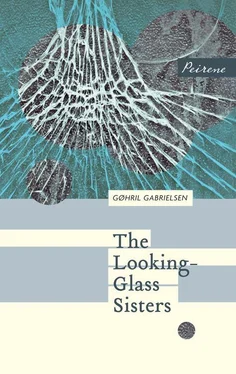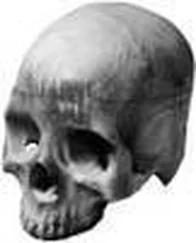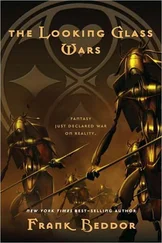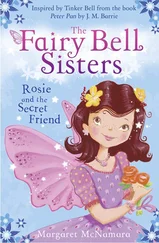And perhaps, still with my face in the water, I will see two sentences come floating by. That is the final judgement, the punishment for everything I have done in my struggle to become visible to Ragna and Johan. I have to choose between the two, there is no fixed ending, no forgiveness, my existence will continue, depending on the sentence I choose:
I exist, and do not know it.
I do not exist, and know it.
*
‘Cm, Rgna! M blddy thrsty!’
But no, Ragna is not to be budged, she remains downstairs with her resentment and anger. She has consistently ignored my cries, all the racket and my supplications. She wants to have me gone, that’s nothing new, she’s wanted that for ages. The nursing home is one thing, but during the slow progress along my dried-up riverbed, among the remains of my joy in living and urge to live, I have brushed up against this and that: an impression of her here, a memory there, small events that confirm that Ragna already wanted me gone when she was quite small.
But perhaps it isn’t the case that my sister at long last wants to see me disappear, for maybe I have not been created, incarnated, indeed not even rendered intelligible as an idea in this world. Here, right at the beginning of memories, I am open to the idea that I, this dusty old thought of living, this primeval wish for a life, have not been conceived and born.
Everything is so confusing, what is it that is actually happening? Is even my own death, this inexorable cessation that has always seemed to me to be a clear, ineluctable truth, to become just as full of uncertainty and speculation as my entire life has been? I can feel that it exhausts me, I am so endlessly tired of never knowing, never completely understanding, of constantly finding myself, no, being forced into an endless series of guesses and assumptions. Maybe there is no forgiveness; after annihilation waits not a final explanation, no reconciling peace, just new enigmas and an infinity of possible answers.
Does the spell that I tried to put on Johan produce those surges of sudden strength, but in the wrong direction, so the words, the filthy, contemptible words that were meant for him, are actually striking me instead, their sharpness slowly twisting my thoughts and draining my strength?
*
The books, the scribblings under the bed in my old room: I would like to have written down what I think and experience, but perhaps writing is precisely what I am doing? A narrative about two seedy sisters and their determined struggle for a life, but also about all of us who have lapsed into laziness and fantasizing, hidden away in a room closer to the sky than the earth?
Therefore, when I finally let go, loosen my last connection with the secure, the usual and the general, it can of course be explained as the result of my craving for drama, my desire to lie and rewrite and change everything that takes place. For here I come, on a free fall through the Cambrian, Devonian, Jurassic, Cretaceous, tumbling through the primeval sky, primeval time, time before, time when, time after, the time has come ; receive me, hold me, I am a poor grizzled one, a newly hatched one, or perhaps nothing.
‘Hlp! Rgna! M dsapprng!’
But it is not Ragna’s hands I can feel, it is the pain from stone and sand, earth and roots pressing against my back and chest. And it is not her voice I hear, reassuringly telling me to pull myself together, but the sound of regular spade-cuts that gradually fall silent. And it is not Ragna who disappears out of the door, angry and furious, it is time wrapping itself around skin and skull, bone and cartilage. And it is not I nestling under the duvet, it is I lying abandoned in a mire of oblivion, just next to the birch tree, right outside my old window. And it is not I fishing a book up from under the bed and placing a pen between my fingers. It is I who have no more to write, no more book to fill, not a margin, not a page to compose. Everything has been written, my story is complete, it disappears. And in a moment I will be gone.
About the Author and Translator
AUTHOR
Gøhril Gabrielsen, born in 1961, grew up in Finnmark, the northernmost county in Norway, and currently lives in Oslo. She won Aschehoug’s First Book Award for her 2006 novel Unevnelige hendelser (Unspeakable Events) , and was the recipient of the 2010 Tanum Scholarship for Women. Since the publication of her debut novel she has brought out two further books to great acclaim in her native Norway, Svimlende muligheter, ingen frykt (The Looking-Glass Sisters) and Skadedyr (Vermin) . Her fourth novel is due out in 2015.
TRANSLATOR
John Irons studied modern and medieval languages at Cambridge before doing research within the field of poetic imagery. Since the mid 1980s he has translated poetry, fiction and non-fiction from the Scandinavian languages and was awarded the NORLA translation prize for non-fiction in 2007.











